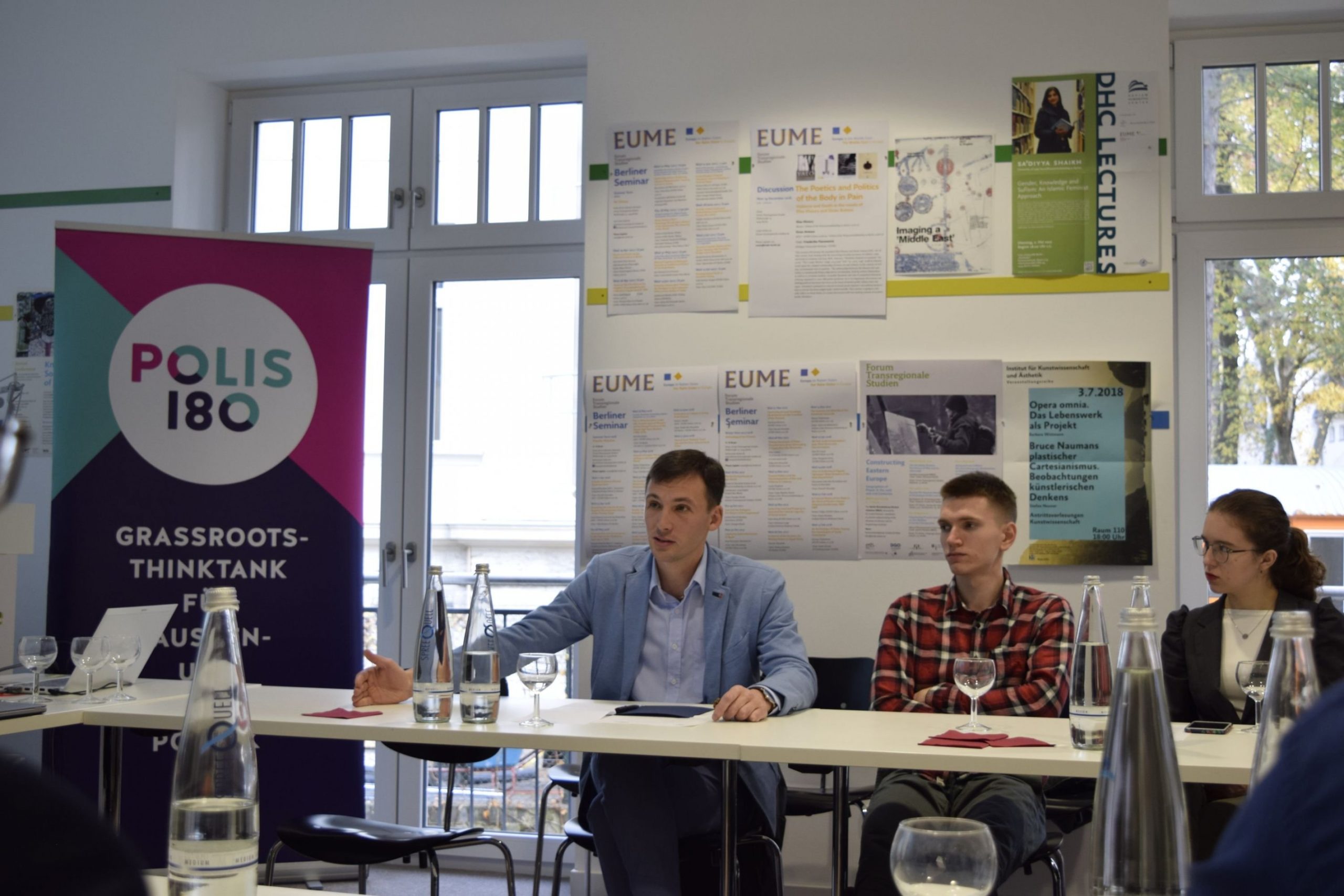For me, the 8th of November will be remembered as one of the brightest moments in 2018. It was the day when our Ukrainomics project started. I had the pleasure to be part of a young group of Ukrainian economists who had a great time in Berlin, gaining new knowledge, experiences and friends. Now I want to share a few thoughts about that.
A Project Report by Ihor Dmytrenko
There were three days of intensive economic discussions in which we raised a variety of topics, ranging from classical ones like Washington consensus policies to ones unfamiliar to me like the degrowth-movement or alternatives to measuring welfare. This strengthened my wholesome comprehension of economic policy and cultivated my desire to learn more about economic approaches beyond the ones classically taught at Ukrainian universities.
The Ukrainomics project was well organised, but because our schedule was rather tight I feel like we did not always have enough time to discuss a particular subject entirely in the seminar. We therefore took to continuing our conversations during lunch breaks and bus transfers. I remember how some of us brought forward the idea of a maximum wage for top managers, while others enthusiastically dismissed it as inefficient. Similar topics on the liberal-progressive spectrum like tariffs or privatisation of state enterprises regularly heated up the debate. And even though we did not always agree, I liked the way we enriched each other and respected each other’s views.
Before the first seminar started, my goal in Berlin was to hear another point of view on the reform process in Ukraine. Honestly, I was quite skeptical about that, because in my network at home in Ukraine highly liberal economic ideas are dominant and there seems to be a lack of rational arguments from the other side in Ukraine. But surprisingly, I somehow changed my views on what should be the right economic policies by the end of the workshop. For example, a progressive tax system and the upside of subsidies for domestic companies were not even on my radar. And this is because I learned more about socially-oriented market economy and realised that I like this paradigm more than „wild“ style capitalism.
This change of perspective was provoked by the speakers at the workshop in Berlin, but it would have been impossible without the other participants, one in particular, who played ‚devil’s advocate‘ for a stronger role of the state in economics. It was exciting to listen to the way he stands for his beliefs and to hear his arguments against Washington’s consensus policies. He referred to Nobel laureate Joseph Stiglitz’ argument that privatisation should only occur when the market would perform as well as a benevolent government.
In Ukraine’s experience the market did not always perform well: when the planned economy collapsed in the 1990s factories were privatised under value, usually given to their Soviet-era managers, regional politicians or other powerful actors. Many of these first profiteers of privatisation became the oligarchs still dominating the country. They spent the 1990s dividing privatised assets among themselves. This resulted in monopolies and an institutional framework shaped according to their preferences and interests, one of the main factors holding back Ukraine’s development today.
Besides all of that (history), it was also interesting to visit German government agencies and get acquainted with their structure. I discovered that in Germany the ministries of economy and energy are combined in one, because their policies are so intertwined and putting them together makes economic policy more efficient. We also had meetings with the Ukraine Support Group, a German consulting firm involved in the Ukrainian reform process. I personally saw the document folders connected to reform plans starting from 2002. It is astonishing to see that international actors have been working on our reforms for such a long period of time.
Overall, the project completely exceeded my expectations: high quality of economic discussions and acquaintance with ideas that are under consideration in transition countries. But the main thing I take away from this is people with whom I shared all of this. I am sure that such synergy was possible only because of people who share common interests and values. And I hope we will continue to cooperate and be agents of change in our country in the nearest future.
Thank you to Polis180, VoxUkraine and the German government for making this possible!
The article is published as part of the project Ukrainomics. The project is funded by the German Federal Foreign Office in the framework of the programme “Expanding Cooperation with Civil Society in the Eastern Partnership Countries and Russia”. See all our photos on Facebook & Instagram. #Ukrainomics #civilsocietycooperation
The Polis Blog serves as a platform at the disposal of Polis180’s members. Published comments express solely the authors’ opinions and shall not be confounded with the opinions of the editors or of Polis180.
Image Source: Orsloya Zilahi + Ewa Dabrowska

Ihor is currently finishing a Masters degree in Mathematical Economics at Kyiv School of Economics. In his thesis, he looks at the decentralisation reform in Albania. He is also part of several civil society and research projects related to the reform process in Ukraine, including a project on VAT compliance for the Ministry of Finance. In 2018, he took part in the Polis180 project “Ukrainomics”.
